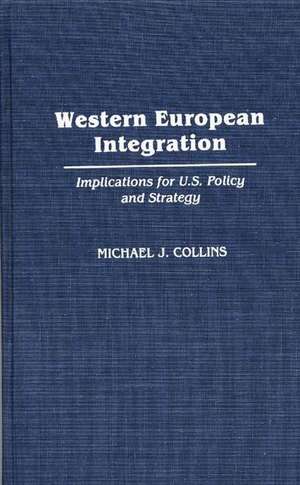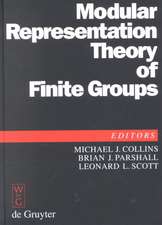Western European Integration: Implications for U.S. Policy and Strategy
Autor Michael J. Collinsen Limba Engleză Hardback – 19 feb 1992 – vârsta până la 17 ani
Preț: 343.80 lei
Preț vechi: 475.20 lei
-28% Nou
Puncte Express: 516
Preț estimativ în valută:
65.78€ • 68.69$ • 54.32£
65.78€ • 68.69$ • 54.32£
Carte tipărită la comandă
Livrare economică 15-29 aprilie
Preluare comenzi: 021 569.72.76
Specificații
ISBN-13: 9780275941703
ISBN-10: 0275941701
Pagini: 160
Dimensiuni: 140 x 216 x 18 mm
Greutate: 0.35 kg
Ediția:New.
Editura: Bloomsbury Publishing
Colecția Praeger
Locul publicării:New York, United States
ISBN-10: 0275941701
Pagini: 160
Dimensiuni: 140 x 216 x 18 mm
Greutate: 0.35 kg
Ediția:New.
Editura: Bloomsbury Publishing
Colecția Praeger
Locul publicării:New York, United States
Notă biografică
MICHAEL J. COLLINS is Associate Professor of Political Science at Troy State University and a retired Lieutenant Colonel in the USAF. He has taught at the Air Command and Staff College and at West Point, as well as having served on the Air Staff at the Pentagon and in the International Military Staff at NATO Headquarters in Brussels. He has co-edited several volumes on military issues.
Cuprins
IntroductionPatterns of ChangeA Unified European Defense SystemEuropean Political CooperationWhy Not a New Unified Nation-State?Implications for U.S. Foreign PolicyImplications for U.S. Military StrategyConclusionBibliographyIndex























